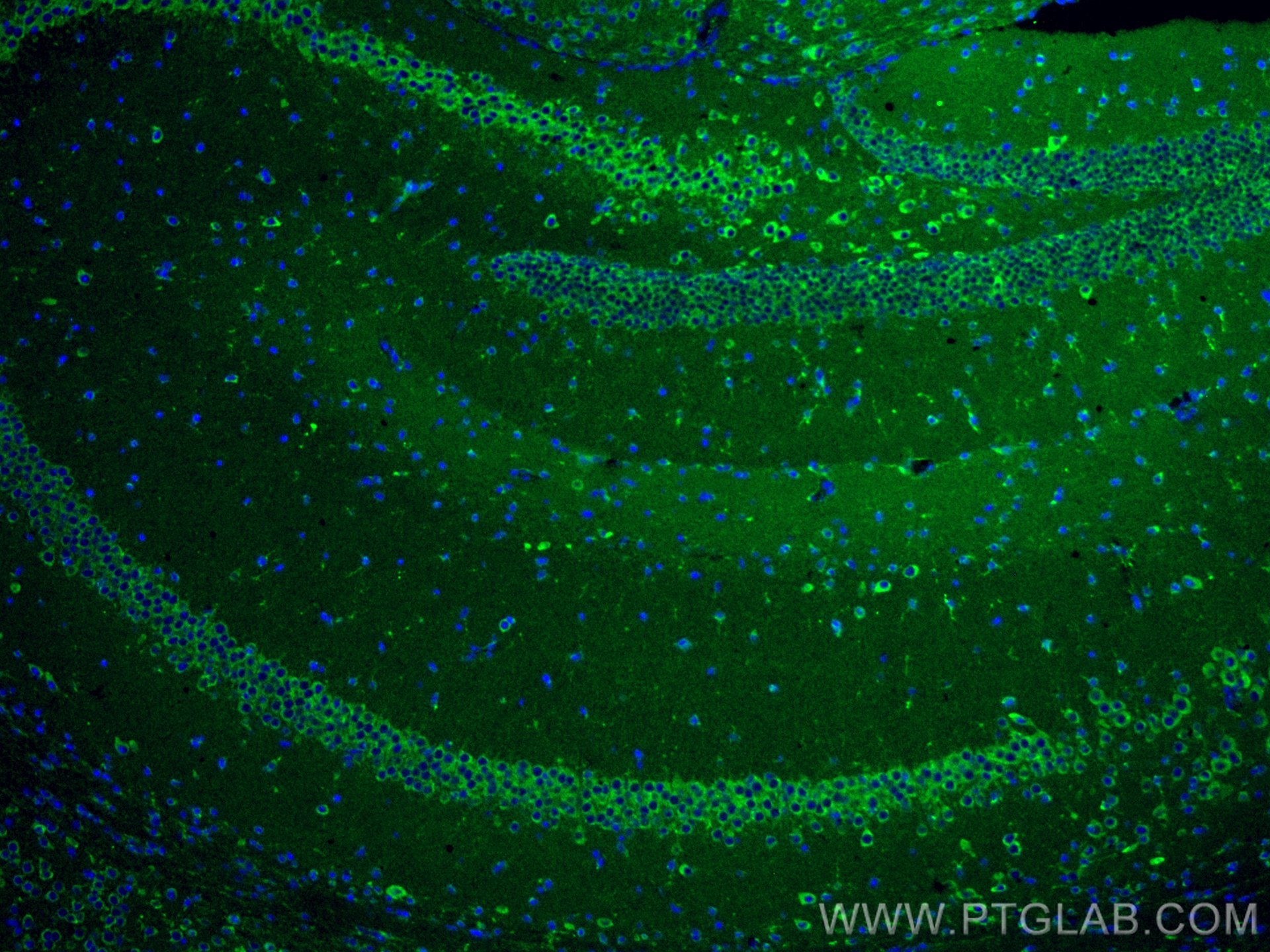Tested Applications
| Positive IF-P detected in | mouse brain tissue |
Recommended dilution
| Application | Dilution |
|---|---|
| Immunofluorescence (IF)-P | IF-P : 1:50-1:500 |
| It is recommended that this reagent should be titrated in each testing system to obtain optimal results. | |
| Sample-dependent, Check data in validation data gallery. | |
Product Information
CL488-66527 targets MFF in IF-P applications and shows reactivity with Human, pig, rat, mouse samples.
| Tested Reactivity | Human, pig, rat, mouse |
| Host / Isotype | Mouse / IgG1 |
| Class | Monoclonal |
| Type | Antibody |
| Immunogen |
CatNo: Ag9990 Product name: Recombinant human MFF protein Source: e coli.-derived, PGEX-4T Tag: GST Domain: 1-238 aa of BC000797 Sequence: MAEISRIQYEMEYTEGISQRMRVPEKLKVAPPNADLEQGFQEGVPNASVIMQVPERIVVAGNNEDVSFSRPADLDLIQSTPFKPLALKTPPRVLTLSERPLDFLDLERPPTTPQNEEIRAVGRLKRERSMSENAVRQNGQLVRNDSLPVLRGGSAAATSNPHHDNVRYGISNIDTTIEGTSDDLTVVDAASLRRQIIKLNRRLQLLEEENKERAKREMVMYSITVAFWLLNSWLWFRR Predict reactive species |
| Full Name | mitochondrial fission factor |
| Calculated Molecular Weight | 38 kDa |
| GenBank Accession Number | BC000797 |
| Gene Symbol | MFF |
| Gene ID (NCBI) | 56947 |
| RRID | AB_2919338 |
| Conjugate | CoraLite® Plus 488 Fluorescent Dye |
| Excitation/Emission Maxima Wavelengths | 493 nm / 522 nm |
| Form | Liquid |
| Purification Method | Protein G purification |
| UNIPROT ID | Q9GZY8 |
| Storage Buffer | PBS with 50% glycerol, 0.05% Proclin300, 0.5% BSA, pH 7.3. |
| Storage Conditions | Store at -20°C. Avoid exposure to light. Stable for one year after shipment. Aliquoting is unnecessary for -20oC storage. |
Background Information
MFF (mitochondrial fission factor) is a mitochondrial outer membrane protein that is involved in mitochondrial localization of Drp1 and mitochondrial fission. Multiple isoforms of MFF exist due to the alternative splicing. This antibody recognizes the endogenous MFF protein around 26-29 kDa and 35-38 kDa.
Protocols
| Product Specific Protocols | |
|---|---|
| IF protocol for CL Plus 488 MFF antibody CL488-66527 | Download protocol |
| Standard Protocols | |
|---|---|
| Click here to view our Standard Protocols |




